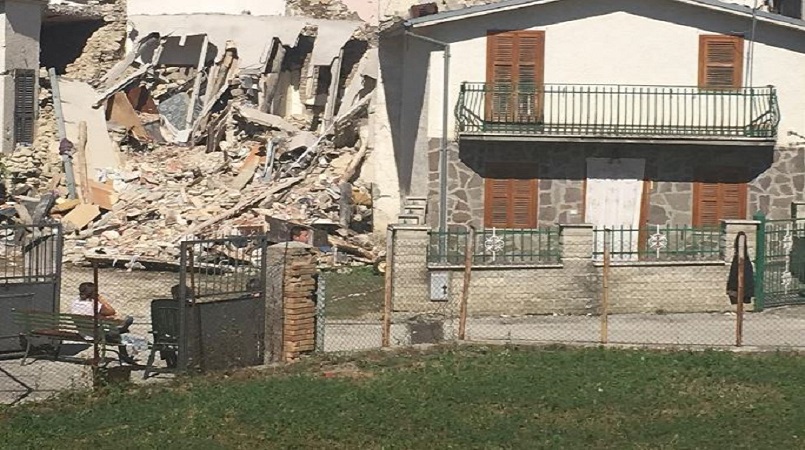
Italy's anti-mafia chief is adamant that the country's notorious crime syndicate must be kept from infiltrating reconstruction efforts, as an investigation opened into why so many buildings collapsed in a devastating earthquake last week.
The earthquake that struck central Italy before dawn on Wednesday flattened entire villages in ancient towns like Amatrice, but even newly constructed buildings that were supposed to be quake-proofed, including a school, were destroyed.
"The risks are there, it's impossible to hide. And post-earthquake reconstruction is historically a delicious morsel for criminal groups and business interests," anti-mafia prosecutor Franco Roberti told the Italian daily La Repubblica.
He said the country could learn lessons from the 1980 Irpinia earthquake, in which more than 2,400 people died.
"Behind those thousands of dead was reckless building and clan affairs," Roberti said.
"And without wishing to rush judgments I see that also in 2016 many buildings crumbled, public buildings also. Too many," he said, adding that if anti-seismic standards had been met, buildings might crack but shouldn't collapse.
"This is why ... I imagine there's a lot to learn."
He said, however, that the reconstruction after an earthquake in L'Aquila in 2009, which killed more than 300 people, had been largely successful.
Devastation
The quake has so far claimed the lives of at least 290 people, and as hopes of finding any more survivors are all but gone, officials are now faced with cleaning up the mountains of rubble and organizing a mammoth reconstruction plan.
Trials continue over 'mafia-linked' reconstruction
Italy has long struggled with mafia power and corruption. The finance ministry has its own police force and has sent officers to monitor the recovery so that all resources go to the right people and places.
The country's law enforcement agencies are in a renewed anti-mafia drive, and more than 140 people are currently on trial for helping the southern 'Ndrangheta mafia infiltrate the country's wealthy north. Many of them were accused of helping the network profit illegally from reconstruction projects after deadly earthquakes in the Emilia-Romagna region in 2012.
Anna Sergi, an organized crime expert from the University of Essex, said she was pessimistic that the country would be able to keep the mafia entirely out of the reconstruction.
"Construction is one of the mafia's main sources of revenue, partly because construction is linked to territory, so the mafia not only seeks construction contracts for money, but also to mark their territory," Sergi told CNN.
"There is very likely to be corruption in a reconstruction effort like this, because in Italy, where there is a lot of money, there is always a link to mafia power."
Another challenge in keeping them out of the picture is that they are very difficult to spot these days.
"In more traditional areas of mafia power, they used to use guns and violence to intimidate people, but in most places, they now look more like businessmen, who use corruption and threats to win contracts."
What often happens, Sergi said, is that a mafia-linked company will win a contract for a certain amount of money, and underpay its sub-contractors to pocket a wider margin.
"They pay their workers way less, so they of course do a worse job, and that leads to higher maintenance costs, and in many case, more money generated for them."
Corruption a 'cancer in Italy'
In some affected parts of central Italy, the villages are so small that officials have to weigh up whether they will bother rebuilding at all.
The village of Capricchia has a few hundred people living there in the summer, when residents from cities visit the mountains to get out of the heat. But in the winter, there are usually 12 to 15 residents.
"I don't think there'll be a future."
Rosella Santarelli
In the village, Rosella Santarelli is staying in a campervan, too afraid to stay in a building as aftershocks continue.
"I don't think there'll be a future. Our village is poor, there are no people and no jobs. Amatrice is 5 miles away, but there's nothing left of that."
And even in L'Aquila, where the reconstruction was apparently a success, some said they felt they were left out of the town's rebuild, and that too much had been spent fixing the damage to the historic center rather than their neighborhoods.
"In Italy, corruption is the big problem," Davide Tonati, 36, told CNN in L'Aquila.
"There are many politicians and bribes. It is the cancer in Italy."
